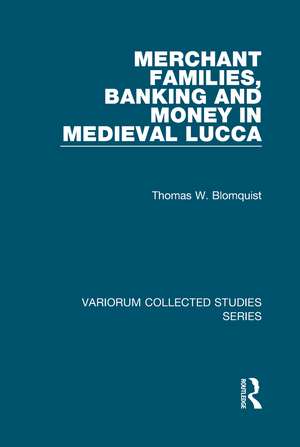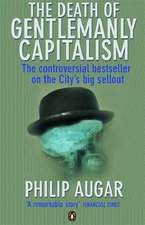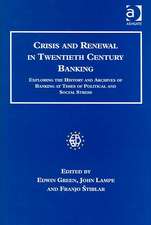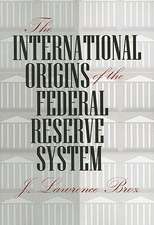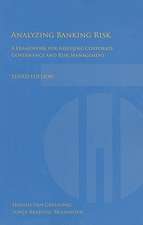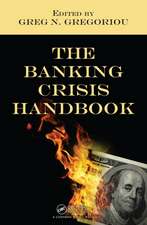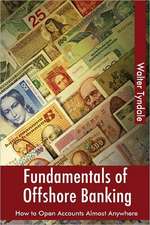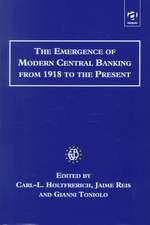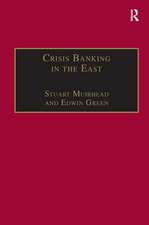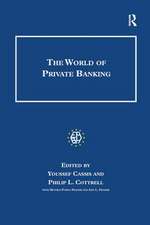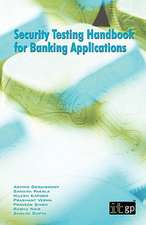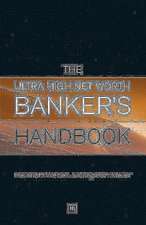Merchant Families, Banking and Money in Medieval Lucca: Variorum Collected Studies
Autor Thomas W. Blomquisten Limba Engleză Hardback – 27 mai 2005
Din seria Variorum Collected Studies
- 9%
 Preț: 938.85 lei
Preț: 938.85 lei -
 Preț: 311.41 lei
Preț: 311.41 lei -
 Preț: 351.48 lei
Preț: 351.48 lei -
 Preț: 313.38 lei
Preț: 313.38 lei -
 Preț: 386.77 lei
Preț: 386.77 lei -
 Preț: 325.68 lei
Preț: 325.68 lei -
 Preț: 396.00 lei
Preț: 396.00 lei -
 Preț: 312.75 lei
Preț: 312.75 lei - 9%
 Preț: 1041.23 lei
Preț: 1041.23 lei -
 Preț: 258.66 lei
Preț: 258.66 lei -
 Preț: 299.55 lei
Preț: 299.55 lei - 9%
 Preț: 938.08 lei
Preț: 938.08 lei -
 Preț: 343.33 lei
Preț: 343.33 lei -
 Preț: 311.18 lei
Preț: 311.18 lei - 9%
 Preț: 937.13 lei
Preț: 937.13 lei -
 Preț: 341.55 lei
Preț: 341.55 lei -
 Preț: 320.00 lei
Preț: 320.00 lei - 34%
 Preț: 764.20 lei
Preț: 764.20 lei - 22%
 Preț: 312.43 lei
Preț: 312.43 lei - 34%
 Preț: 739.65 lei
Preț: 739.65 lei - 34%
 Preț: 764.20 lei
Preț: 764.20 lei - 34%
 Preț: 680.73 lei
Preț: 680.73 lei - 26%
 Preț: 247.40 lei
Preț: 247.40 lei - 34%
 Preț: 485.78 lei
Preț: 485.78 lei - 34%
 Preț: 764.20 lei
Preț: 764.20 lei - 34%
 Preț: 767.07 lei
Preț: 767.07 lei - 34%
 Preț: 764.20 lei
Preț: 764.20 lei - 34%
 Preț: 769.51 lei
Preț: 769.51 lei - 34%
 Preț: 764.20 lei
Preț: 764.20 lei - 34%
 Preț: 826.68 lei
Preț: 826.68 lei - 25%
 Preț: 225.28 lei
Preț: 225.28 lei - 25%
 Preț: 225.54 lei
Preț: 225.54 lei - 34%
 Preț: 736.38 lei
Preț: 736.38 lei - 34%
 Preț: 738.43 lei
Preț: 738.43 lei - 25%
 Preț: 226.52 lei
Preț: 226.52 lei - 33%
 Preț: 491.66 lei
Preț: 491.66 lei - 34%
 Preț: 485.78 lei
Preț: 485.78 lei - 34%
 Preț: 485.78 lei
Preț: 485.78 lei - 36%
 Preț: 739.17 lei
Preț: 739.17 lei - 38%
 Preț: 766.34 lei
Preț: 766.34 lei - 31%
 Preț: 473.94 lei
Preț: 473.94 lei - 18%
 Preț: 807.71 lei
Preț: 807.71 lei - 38%
 Preț: 774.91 lei
Preț: 774.91 lei - 34%
 Preț: 764.20 lei
Preț: 764.20 lei - 34%
 Preț: 764.20 lei
Preț: 764.20 lei - 51%
 Preț: 485.78 lei
Preț: 485.78 lei - 34%
 Preț: 485.78 lei
Preț: 485.78 lei - 34%
 Preț: 769.10 lei
Preț: 769.10 lei - 34%
 Preț: 766.65 lei
Preț: 766.65 lei - 18%
 Preț: 1019.01 lei
Preț: 1019.01 lei
Preț: 475.63 lei
Preț vechi: 689.17 lei
-31% Nou
Puncte Express: 713
Preț estimativ în valută:
91.01€ • 95.26$ • 75.75£
91.01€ • 95.26$ • 75.75£
Carte tipărită la comandă
Livrare economică 31 martie-14 aprilie
Preluare comenzi: 021 569.72.76
Specificații
ISBN-13: 9780860789710
ISBN-10: 0860789713
Pagini: 296
Dimensiuni: 150 x 224 x 24 mm
Greutate: 0.54 kg
Ediția:1
Editura: Taylor & Francis
Colecția Routledge
Seria Variorum Collected Studies
Locul publicării:Oxford, United Kingdom
ISBN-10: 0860789713
Pagini: 296
Dimensiuni: 150 x 224 x 24 mm
Greutate: 0.54 kg
Ediția:1
Editura: Taylor & Francis
Colecția Routledge
Seria Variorum Collected Studies
Locul publicării:Oxford, United Kingdom
Cuprins
Contents: Preface; Acknowledgements; Merchant Families, Trade and Government: The Castracani family of thirteenth-century Lucca; Lineage, land and business, in the thirteenth century: the Guidiccioni family of Lucca; Lineage, land and business, in the thirteenth century: the Guidiccioni family of Lucca; La famiglia e gli affari: le compagnie internazionali lucchesi al tempo di Castruccio Castracani; City and country in medieval Tuscany: the Ricciardi family and rural investment in thirteenth-century Lucca; The drapers of Lucca and the marketing of cloth in the mid-thirteenth century; The first consuls at Lucca: 10 July 1119. Banking: Commercial association in thirteenth-century Lucca; The dawn of banking in an Italian commune: thirteenth century Lucca; The early history of European banking: merchants, bankers and Lombards of thirteenth-century Lucca in the county of Champagne; Some observations on early foreign exchange banking based upon new evidence from thirteenth-century Lucca; Administration of a thirteenth-century mercantile-banking partnership: an episode in the history of the Ricciardi of Lucca; De Roover on business, banking and economic thought. Money: Alle origini del 'Grosso' Toscano: la testimonianza delle fonti del XII secolo; The second issuance of a Tuscan gold coin: the gold groat of Lucca, 1256; Alien coins and foreign exchange banking in a medieval commune: thirteenth-century Lucca; Index.
Notă biografică
Thomas W. Blomquist is Emeritus Professor of History at Northern Illinois University, USA.
Recenzii
'Written with precision and lucidity, [the 16 essays] take us straight to the heart of important issues in the history of thirteenth-century Lucca. The essays are based upon a thorough and enviable knowledge of the city's notarial archives... These essays have had a real impact upon current understanding of thirteenth-century Tuscany and it is a boon to have them collected. Taken together they represent a considerable achievement.' Economic History Review
Descriere
This volume brings together a series of studies on the evolution of banking in Lucca from the 12th and 13th centuries, describing how the leading bankers operated, invested, and pursued their family interests. They trace the transformation of money changers, or campsores, into deposit and transfer bankers, who deployed their capital in trading ventures as well as in banking, and show how the Lucchese expanded their operations to the fairs of Champagne and all of Europe's major commercial centres.
